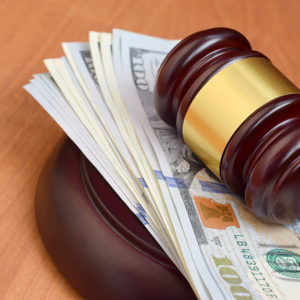Commercial vehicle accidents can wreak havoc on individuals and communities, causing immense harm. It is essential for victims seeking justice to comprehend the legal framework that surrounds these incidents. It is vital for all to understand the most critical aspects of the legal landscape concerning commercial vehicle accidents, including liability, regulations and insurance.
Determining who is at fault in commercial vehicle accidents can be intricate. Multiple parties can be held accountable, such as the driver, vehicle owner, employer, and even the vehicle manufacturer or parts supplier. Vicarious liability often comes into play when an employee causes an accident while on the job. Conducting a thorough investigation to identify all potentially liable parties and build a robust case for compensation is crucial.
According to Harold Gerr, a lawyer in New Jersey specializing in commercial vehicle accidents: “Commercial vehicles must adhere to specific regulations designed to ensure road safety. These regulations are typically enforced by government bodies like the Federal Motor Carrier Safety Administration. They cover various aspects, including driver qualifications, hours of service, vehicle maintenance, cargo securement and more. Failure to comply with these regulations can significantly affect liability in commercial vehicle accidents and can serve as evidence of negligence.”
Insurance: Commercial vehicle accidents generally involve higher stakes than other car accidents due to the potential for more extensive damages and the involvement of multiple parties. Commercial vehicle owners must carry higher insurance coverage to account for these potential losses. Insurance companies representing the responsible parties typically become involved in the claims process when an accident occurs. However, dealing with insurance companies can be challenging, as their primary objective is to minimize their financial responsibility. Victims should exercise caution and consider seeking legal counsel to ensure fair compensation.
Evidence and Documentation: Gathering and preserving evidence is crucial when involved in a commercial vehicle accident. This evidence may include photographs of the accident scene, vehicle damage, witness statements, police reports and other relevant documents. Such evidence plays a vital role in establishing liability and demonstrating the extent of injuries. Timely collection and preservation of evidence are essential, as they may deteriorate or become inaccessible over time.
The Importance of Legal Representation: Navigating the legal process after a commercial vehicle accident can be overwhelming. It is important to engage an experienced attorney specializing not only in general personal injury law but one who has experience dealing with commercial vehicle accidents. The right legal team can help victims understand their rights, assess the strength of their case, negotiate with insurance companies, and pursue the appropriate legal action. Because these cases can be complicated, working with an experienced team can guide the injured party through the complexities of the legal system, which maximizes the chances of receiving appropriate compensation.
Statutes of Limitations: Being aware of the statutes of limitations when pursuing legal action in commercial vehicle accident cases is essential. Statutes of limitations impose time limits on when a lawsuit can be filed after an accident. These time limits vary depending on the jurisdiction and can range from months to several years. Failing to initiate legal proceedings within the specified time can result in losing the right to seek compensation.
Commercial vehicle accidents can have far-reaching consequences, affecting the lives of victims and their families. By advocating for their rights and seeking fair compensation, victims can strive for justice and contribute to safer roadways for everyone.

